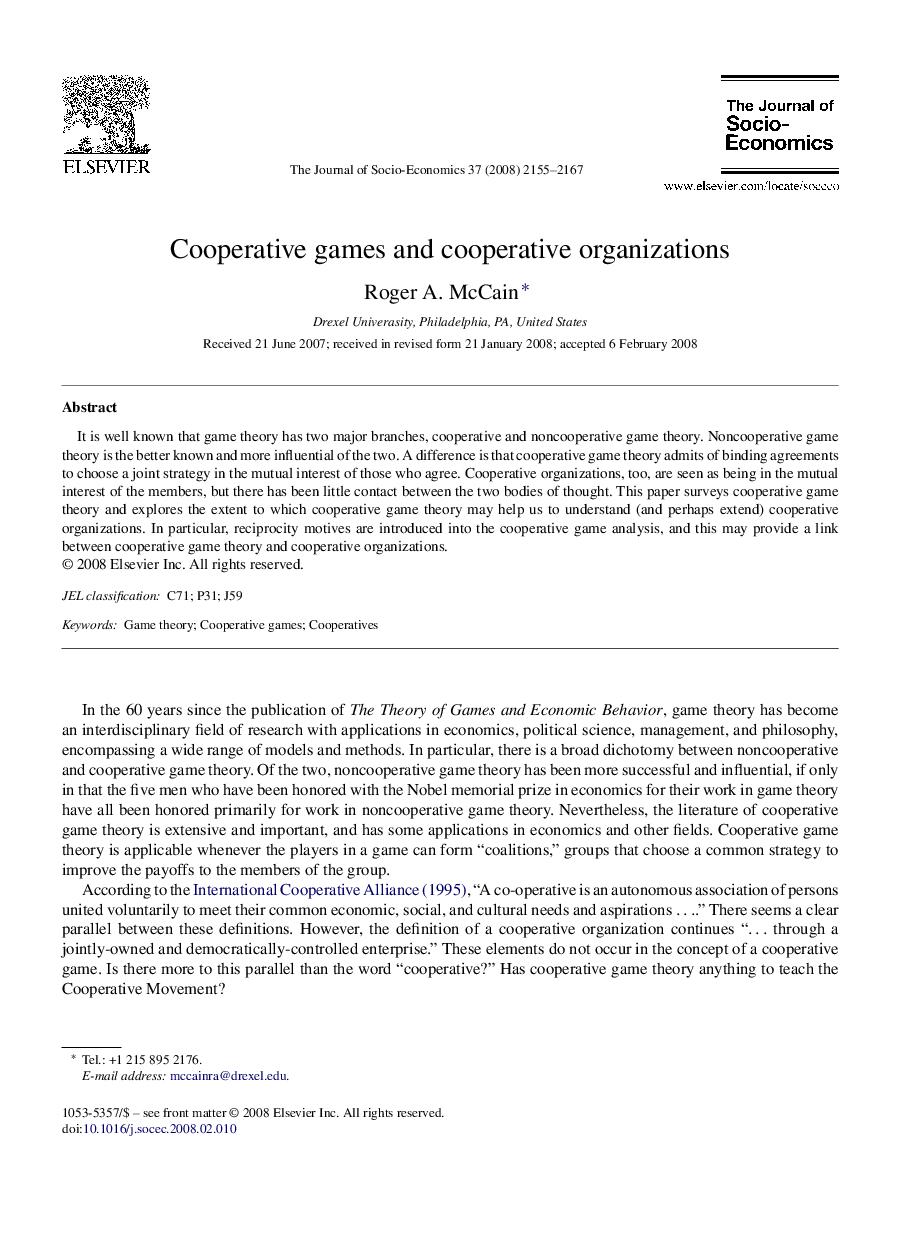| Article ID | Journal | Published Year | Pages | File Type |
|---|---|---|---|---|
| 971060 | The Journal of Socio-Economics | 2008 | 13 Pages |
It is well known that game theory has two major branches, cooperative and noncooperative game theory. Noncooperative game theory is the better known and more influential of the two. A difference is that cooperative game theory admits of binding agreements to choose a joint strategy in the mutual interest of those who agree. Cooperative organizations, too, are seen as being in the mutual interest of the members, but there has been little contact between the two bodies of thought. This paper surveys cooperative game theory and explores the extent to which cooperative game theory may help us to understand (and perhaps extend) cooperative organizations. In particular, reciprocity motives are introduced into the cooperative game analysis, and this may provide a link between cooperative game theory and cooperative organizations.
